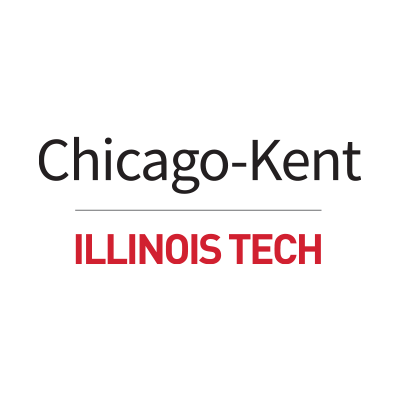45th Annual Kenneth M. Piper Lecture
Total Credits: 1.5
- Categories:
- Labor Law
- Speakers:
- Jeffrey M. Hirsch | Bradford J. Kelley | Danielle S. Van Lier
- Duration:
- 1 Hour 38 Minutes
- Format:
- Audio and Video
- Original Program Date:
- Mar 05, 2024
- Product Type:
- On Demand
- License:
- Access for 365 day(s) after purchase.
Description
Join us to hear Jeff Hirsch, Geneva Yeargan Rand Distinguished Professor of Law, The University of North Carolina School of Law, deliver this year's 45th Kenneth M. Piper Lecture as he addresses labor regulations in AI. AI technology has rapidly advanced in recent years, promising numerous benefits. On the other hand, AI also presents risks, including privacy violations and discrimination. Congress and state legislatures have been slow to react and, as a result, government regulation of AI is virtually nonexistent in the U.S.
This regulatory gap is not total, however. In absence of government intervention, one group has been able to impose substantial limits on AI use: labor unions. As employers have increasingly used AI in the workplace, workers have begun seeing risks of that technology directly. Unions—which have the expertise, opportunity, and incentive to address AI use at work—have been at the forefront of regulating AI in the workplace. These efforts are still nascent, but AI’s prominence in the two major Hollywood strikes and subsequent contracts demonstrate unions’ important regulatory role in this area.
Speaker
- Jeff Hirsch, Geneva Yeargan Rand Distinguished Professor of Law, The University of North Carolina School of Law
Commentators
- Brad Kelley, Shareholder, Littler
- Danielle S. Van Lier, Senior Assistant General Counsel, Contract & Compliance, SAG-AFTRA
Speaker

Jeffrey M. Hirsch Related Seminars and Products
Geneva Yeargan Rand Distinguished Professor of Law
University of North Carolina School of Law
Jeffrey Hirsch, Geneva Yeargan Rand Distinguished Professor of Law, joined Carolina Law in 2011. He served as Associate Dean for Strategy from 2016-2018 and Associate Dean for Academic Affairs from 2013-2016. Hirsch’s teaching and research focuses on labor and employment law issues, and he has authored numerous books, book chapters, articles, and essays on topics including technology in the workplace, unions, and dismissal law. His article Regulatory Pragmatism at Work was selected for the 2008 Seton Hall Labor & Employment Law Scholars’ Forum, and his co-authored article Comparative Wrongful Dismissal Law: Reassessing American Exceptionalism was selected for Princeton University’s 2012 Comparative Law Works in Progress Workshop. He is an editor of the Workplace Prof Blog, executive committee member of the Labor Law Group, research fellow at the NYU Center for Labor & Employment Law, former chair of the AALS Labor Relations & Employment Law Section, and former president of the Southeastern Association of Law Schools. Professor Hirsch received University of Tennessee’s Marilyn V. Yarbrough Faculty Award for Writing Excellence in 2016, Carolina Law’s Charles E. Daye Award for Excellence in Service in 2018, and Carolina Law’s Frederick B. McCall Award for Teaching Excellence in 2019, and in 2021 the Paul Steven Miller Award for outstanding academic and public contributions to the field of labor and employment law.
Hirsch earned his B.A. from the University of Virginia; Master of Public Policy from the College of William & Mary; and J.D. from the NYU School of Law, where he received the ABA/BNA Prize for Excellence in Labor & Employment Law and Seymour Goldstein Prize for Academic Excellence in Labor Relations. He then clerked for Judge Haldane Mayer, U.S. Court of Appeals for the Federal Circuit and Judge Robert Beezer, U.S. Court of Appeals for the Ninth Circuit; litigated in the National Labor Relations Board’s Appellate Court Branch; and taught for several years at the University of Tennessee College of Law, as well as Vanderbilt University Law School as a visiting professor.
Education
J.D. (cum laude), New York University Law School (1998)
M.P.P., College of William and Mary (1995)
B.A. (cum laude), American Government and Economics, University of Virginia (1992)

Bradford J. Kelley Related Seminars and Products
Shareholder
Littler
Bradford Kelley is a Shareholder in Littler Mendelson’s Washington, DC office and specializes in advising clients about emerging technologies, including artificial intelligence. Before joining Littler, Brad was Chief Counsel to a Commissioner at the U.S. Equal Employment Opportunity Commission where he provided legal and policy advice on the agency’s Initiative on Artificial Intelligence and Algorithmic Fairness. Previously, Brad served as a senior official in the U.S. Department of Labor’s Wage and Hour Division. His work on AI has been published in the Stanford Law & Policy Review, the University of Miami Law Review, the Marquette Law Review, and several other legal journals. Before becoming an attorney, Brad was a U.S. Army infantry and intelligence officer and he is a veteran of the Iraq War.

Danielle S. Van Lier Related Seminars and Products
Senior Assistant General Counsel, Contract & Compliance
SAG-AFTRA
Danielle Van Lier is senior assistant general counsel, contracts and compliance at SAG-AFTRA where she is responsible for managing SAG-AFTRA’s third-party contracts and intellectual property, as well as other efforts aimed at protecting the rights of SAG-AFTRA and its members. Van Lier has written several amicus curiae briefs before the U.S. Supreme Court, the Ninth Circuit Court of Appeals and the California Supreme Court rights of publicity, copyright, and other issues impacting the entertainment industry. She is an adjunct professor at Southwestern Law School where she has taught courses on the Entertainment Guilds and Trademark Law and she previously taught Sports Law and Entertainment Law at Western State College of Law. She is a sought-after speaker and has spoken to global audiences on topics such as deepfakes, rights of publicity, copyright, and the entertainment guilds.
Van Lier earned her J.D. from Washington University School of Law in St. Louis. She has a B.A. in Japanese Language, Literature and Cultural Studies from UC Santa Barbara. In 2019, she earned an LL.M with merit in innovation, technology and the law through University of Edinburgh. She is currently pursuing an MBA through Oxford Brookes University.


